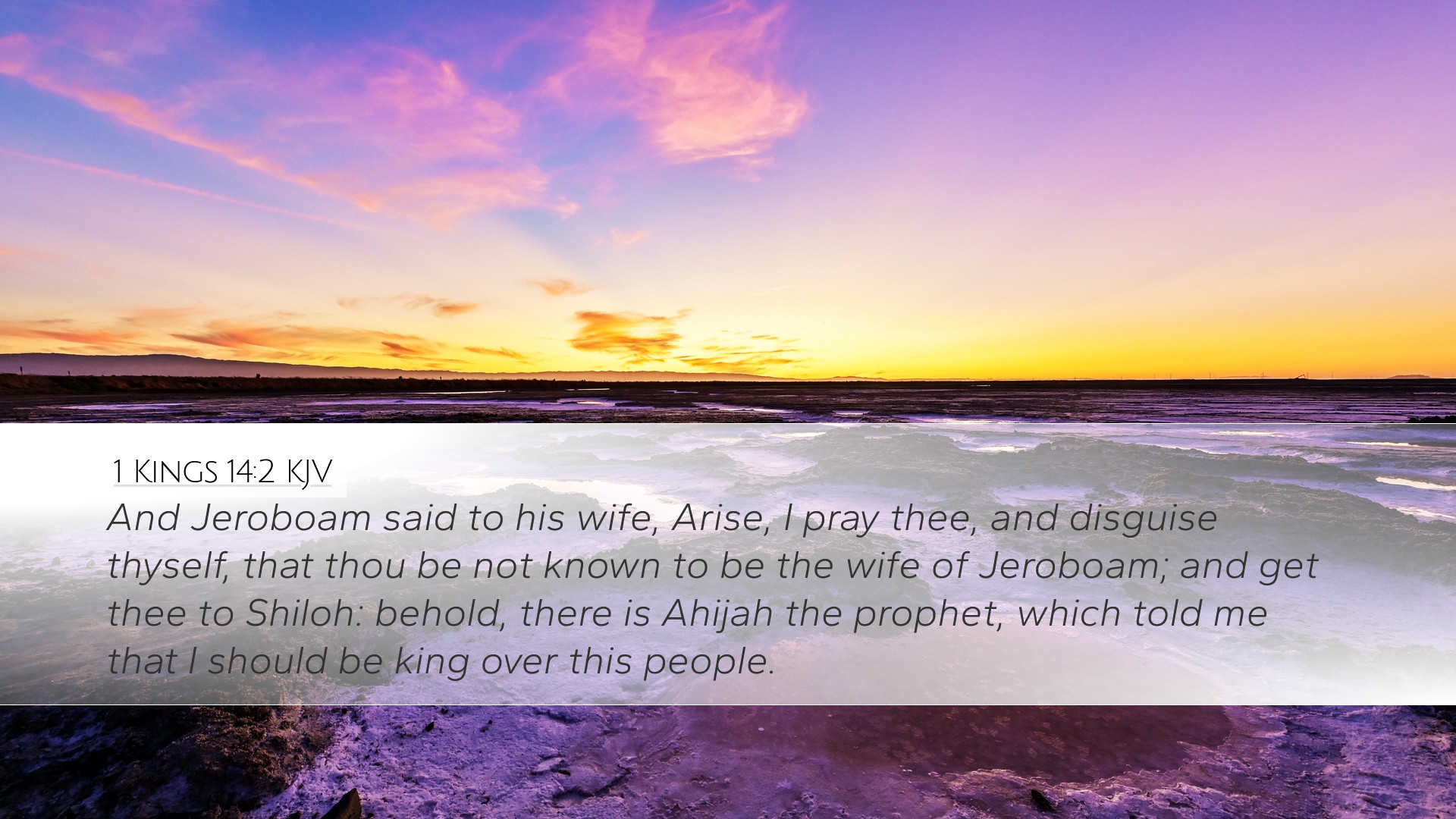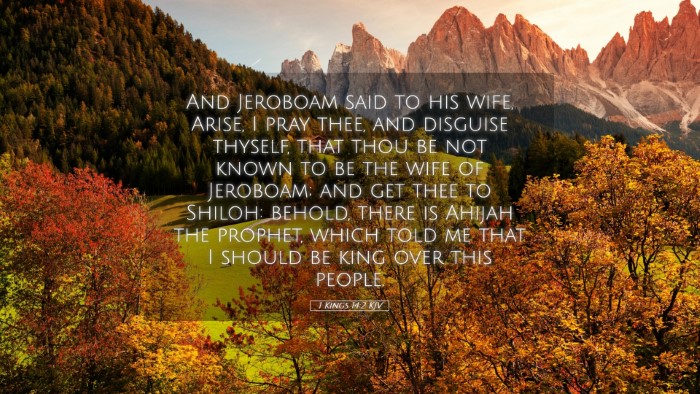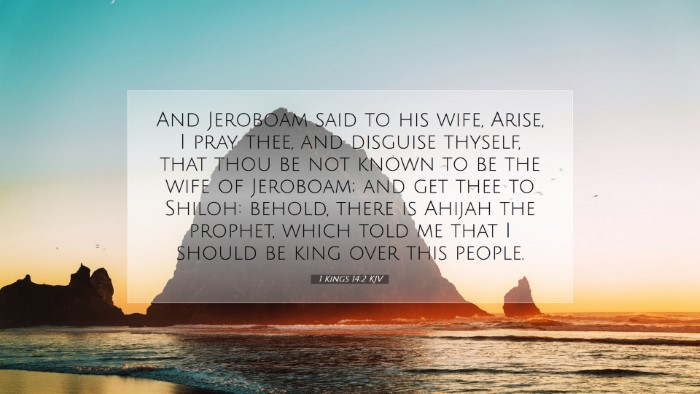1 Kings 14:2 Commentary
In this passage, we see Jeroboam, the first king of the northern tribes of Israel, taking a significant action based on his concern for the future of his kingdom and family. The verse reads:
"And Jeroboam said to his wife, 'Arise, and disguise thyself, that thou be not known to be the wife of Jeroboam; and get thee to Shiloh: behold, there is Ahijah the prophet, which told me that I should be king over this people.'" (1 Kings 14:2, KJV)
Contextual Overview
This verse is set within a critical moment in Israel's history, following Jeroboam's division from Judah. His reign is characterized by political and spiritual instability. Jeroboam, aware of the prophetic significance of Ahijah's previous message regarding his kingship, turns to this prophet once more to seek divine insight into his immediate troubles.
Commentary Insights
Jeroboam’s Fear and Disguise
Jeroboam's decision to send his wife in disguise illustrates both a lack of faith and an awareness of the sever consequences of his actions:
- Matthew Henry emphasizes that Jeroboam’s fear betrays his insecurities as a ruler. His attempt to hide his identity suggests a recognition that he is living contrary to God's will.
- Albert Barnes notes that Jeroboam’s disguise reflects his desperation. He sought prophetic guidance but tried to manipulate the situation, suggesting a weak faith in God’s power to protect him and his family.
- Adam Clarke highlights the irony of Jeroboam's shrewdness in politicking versus his spiritual blindness. Here lies a king willing to compromise integrity for the sake of security.
Seeking Prophesy
Jeroboam's choice to consult Ahijah the prophet is significant for several reasons:
- Spiritual Dichotomy: On one hand, he seeks guidance to preserve his lineage; on the other, he has installed golden calves for worship, indicating a divided heart (Henry).
- Abandonment of Covenant: Jeroboam's royal path is marked by disobedience to the covenant God made with Israel and yet shows the need to affirm his legitimacy as king (Barnes).
- Holy Consultation: Clarke points out that seeking a prophet was a traditional act leveraged by leaders. However, Jeroboam’s approach is flawed, lacking sincere repentance and submission to Yahweh.
Implications for Today
This verse carries profound implications for contemporary believers:
- Faith in Crisis: Leaders and individuals alike often face crises where they may act out of fear or desperation. Jeroboam’s actions call for reflection on how we trust God in challenging times.
- Integrity in Leadership: This narrative alerts leaders to the dangers of duplicity. True leadership must align with God’s directives and maintain integrity rather than relying on human cunning (Henry).
- Honesty with God: God desires an honest and contrite heart. Jeroboam's faithlessness underscores the necessity of approaching God sincerely, without pretense (Clarke).
Conclusion
1 Kings 14:2 serves as a cautionary tale about the pitfalls of spiritual compromise and the importance of seeking God with a pure heart. As we engage with this text, we are reminded of the profound impact of our choices, the necessity for integrity in leadership, and the blessings that come from unwavering faithfulness to God’s covenant.


